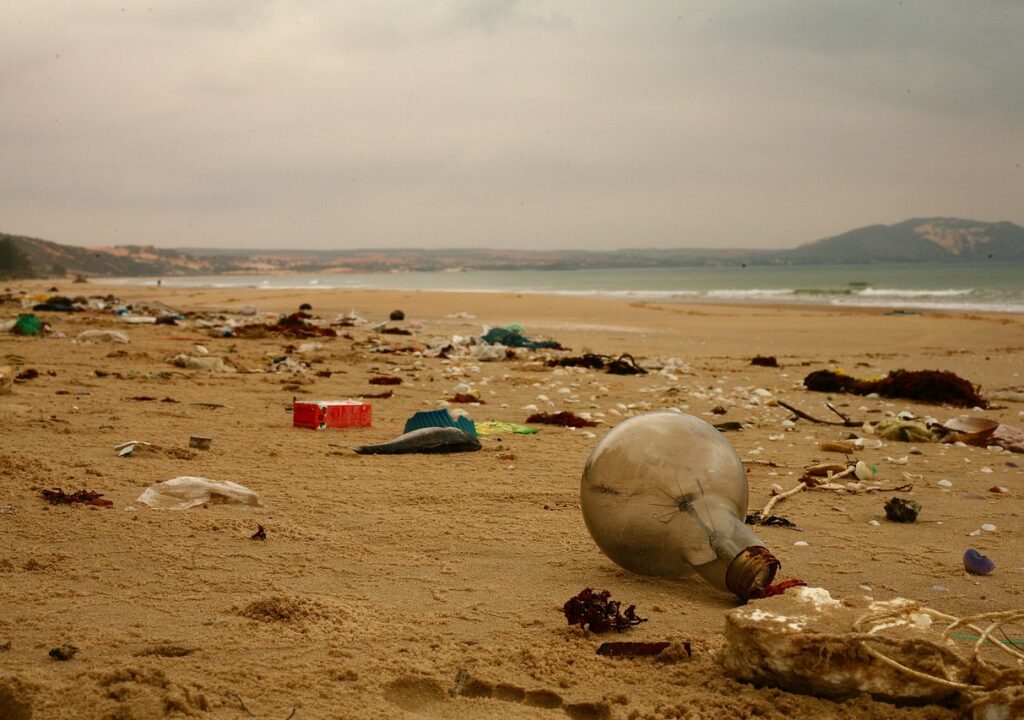
In recent years, ’dirty tourism’ has emerged as a significant topic in the global tourism industry, shedding light on the adverse effects of unsustainable practices such as environmental harm, cultural exploitation, and disregard for local laws. This discussion delves into the challenges and opportunities presented by dirty tourism, particularly in Finland, a country renowned for its dedication to sustainable tourism. Despite the hurdles, there is a silver lining of potential positive change, pointing towards a more sustainable and respectful future in tourism.
Author: Johanna Heinonen
Understanding Dirty Tourism
Dirty tourism refers to activities that cause significant environmental harm and diminish the quality of life for local communities. Unlike ecotourism, which promotes conservation and cultural respect, dirty tourism often leads to environmental degradation, resource exploitation, and cultural insensitivity. Key concerns include the environmental impact of mass tourism, which can lead to waste generation, water pollution, and habitat destruction (Ballantyne et al. 2009). Cultural exploitation is another issue, where tourists may disrespect local customs, reducing cultural practices to mere attractions (Swarbrooke & Horner 2007). Additionally, while tourism can stimulate economic growth, it often exacerbates economic disparities, with profits frequently flowing out of local communities, leaving them to bear the brunt of tourism’s adverse effects (Dalton et al. 2008).
Addressing the challenges posed by dirty tourism requires a nuanced and comprehensive approach. A key issue is the sustainability dilemma inherent in tourism. By its very nature, tourism involves travel and consumption, both of which carry environmental costs. The central challenge is balancing the economic benefits of tourism with the need to preserve natural and cultural resources. Achieving this balance necessitates careful planning, effective regulation, and a strong emphasis on promoting sustainable tourism practices (Dalton et al. 2008).
Effective regulation is essential in mitigating the negative impacts of dirty tourism. However, enforcing rules is often difficult, particularly in regions where tourism represents a significant economic sector. There is frequent hesitation in implementing strict regulations out of concern that they might deter tourists. Additionally, in many developing areas, lack of resources or political will can hinder the effective enforcement of existing laws (Andereck 2009).
Promoting cultural sensitivity among tourists presents another significant challenge. This involves educating tourists about local customs and traditions and ensuring that tourism practices do not commodify or disrespect local cultures. A collaborative effort between local communities, tourism operators, and governments is essential to achieve this (Swarbrooke & Horner 2007).
Opportunities for Mitigating Dirty Tourism
Despite the significant challenges, several strategies can help mitigate the negative impacts of dirty tourism. One of the most promising approaches is the promotion of sustainable tourism. This involves encouraging tourism practices that are environmentally friendly, culturally sensitive, and economically beneficial to local communities. Sustainable tourism can preserve the environment and culture and provide economic benefits to local communities, creating a win-win situation. Education, regulatory frameworks, and the development of eco-friendly tourism infrastructure play crucial roles in this effort (Ballantyne et al. 2009).
Engaging local communities in the planning and management of tourism is equally vital. When local communities have a direct stake in tourism, they are more likely to support sustainable practices and resist exploitative developments. Community-based tourism, where local communities manage and benefit from tourism directly, has proven to be an effective model (Lyons & Wearing 2008).
Educating tourists about the potential impacts of their actions is another essential strategy. Informational campaigns, responsible tourism certifications, and partnerships with tourism operators can help ensure that tourists make environmentally and culturally sensitive choices, thereby reducing the negative impacts of their travel (Andereck 2009).
Dirty Tourism in Finland
Finland, with its unspoiled natural landscapes and rich cultural heritage, is an intriguing case study of the challenges of dirty tourism. Despite its reputation as a leader in sustainable tourism, Finland faces significant issues related to tourism, particularly in sensitive regions like Lapland. Over the winter season, Lapland experiences a surge in tourism driven by the desire to witness the Northern Lights and partake in winter activities. This influence of visitors has led to environmental pressures, including habitat destruction and increased waste, while also placing a considerable strain on local communities that must accommodate the seasonal influx.
Wildlife tourism in Finland presents another challenge, as the country’s diverse wildlife, including species such as bears, wolves, and reindeer, attracts numerous visitors. Balancing the opportunity for tourists to experience this unique wildlife with the need to protect ecosystems and prevent stress on animals is a delicate and complex task. Additionally, the commercialisation of Finland’s indigenous Sami culture poses significant concerns. While Sami culture is a major draw for tourists, cultural exploitation is risky if tourism activities are not carefully managed. Without proper context and respect for its significance, the commodification of Sami culture could exacerbate the broader problem of dirty tourism.
Dirty tourism poses significant challenges to global tourism sustainability, but these can be mitigated through sustainable practices, community engagement, and tourist education. Despite its reputation for sustainable tourism, Finland faces specific challenges, especially in Lapland, that necessitate a coordinated effort from all stakeholders. LAB University of Applied Sciences can play a pivotal role in addressing these issues by researching sustainable tourism practices, promoting community involvement, and developing culturally sensitive and eco-friendly solutions. LAB UAS can also contribute to shaping tourism policies in Finland, ensuring the preservation of the country’s natural and cultural heritage.
References
Andereck, K. L. 2009. Tourists’ perceptions of environmentally responsible innovations at tourism businesses. Journal of Sustainable Tourism. Vol. 17(4), 489–499. Cited 22 August 2024. Available at https://doi.org/10.1080/09669580802495790
Ballantyne, R., Packer, J., & Hughes, K. 2009. Tourists’ support for conservation messages and sustainable management practices in wildlife tourism experiences. Tourism Management. Vol. 30(5), 658–664. Cited 22 August 2024. Available at https://doi.org/10.1016/j.tourman.2008.11.003
Dalton, G. J., Lockington, D. A., & Baldock, T. E. 2008. A survey of tourist attitudes to renewable energy supply in Australian hotel accommodation. Renewable Energy. Vol. 33(10), 2174–2185. Cited 22 August 2024. Available at https://doi.org/10.1016/j.renene.2007.12.016
Lyons, K. D., & Wearing, S. 2008. Volunteer tourism as alternative tourism: Journeys beyond otherness. In Journeys of Discovery in Volunteer Tourism : International Case Study Perspectives. 3–11. Cited 22 August 2024. Available at https://doi.org/10.1079/9781845933807.0003
Swarbrooke, J., & Horner, S. 2007. Consumer behaviour in tourism (2nd ed.). Butterworth-Heinemann.
Author
Johanna Heinonen is a senior lecturer and RDI specialist at LAB University of Applied Sciences. In particular, the diverse development of tourism, digital communication and customer experience are close to her heart. Also, student experiences and applications of new technologies in teaching inspire her.
Illustration: https://pixabay.com/fi/photos/ranta-roskakoriin-muovi-valtameri-4914403/ (sergeitokmakov, Pixabay License)
Reference to this article
Heinonen, J. 2024. Dirty Tourism: Challenges, Opportunities, and Its Presence in Finland. LAB Pro. Cited and the date of citation. Available at https://www.labopen.fi/lab-pro/dirty-tourism-challenges-opportunities-and-its-presence-in-finland/






